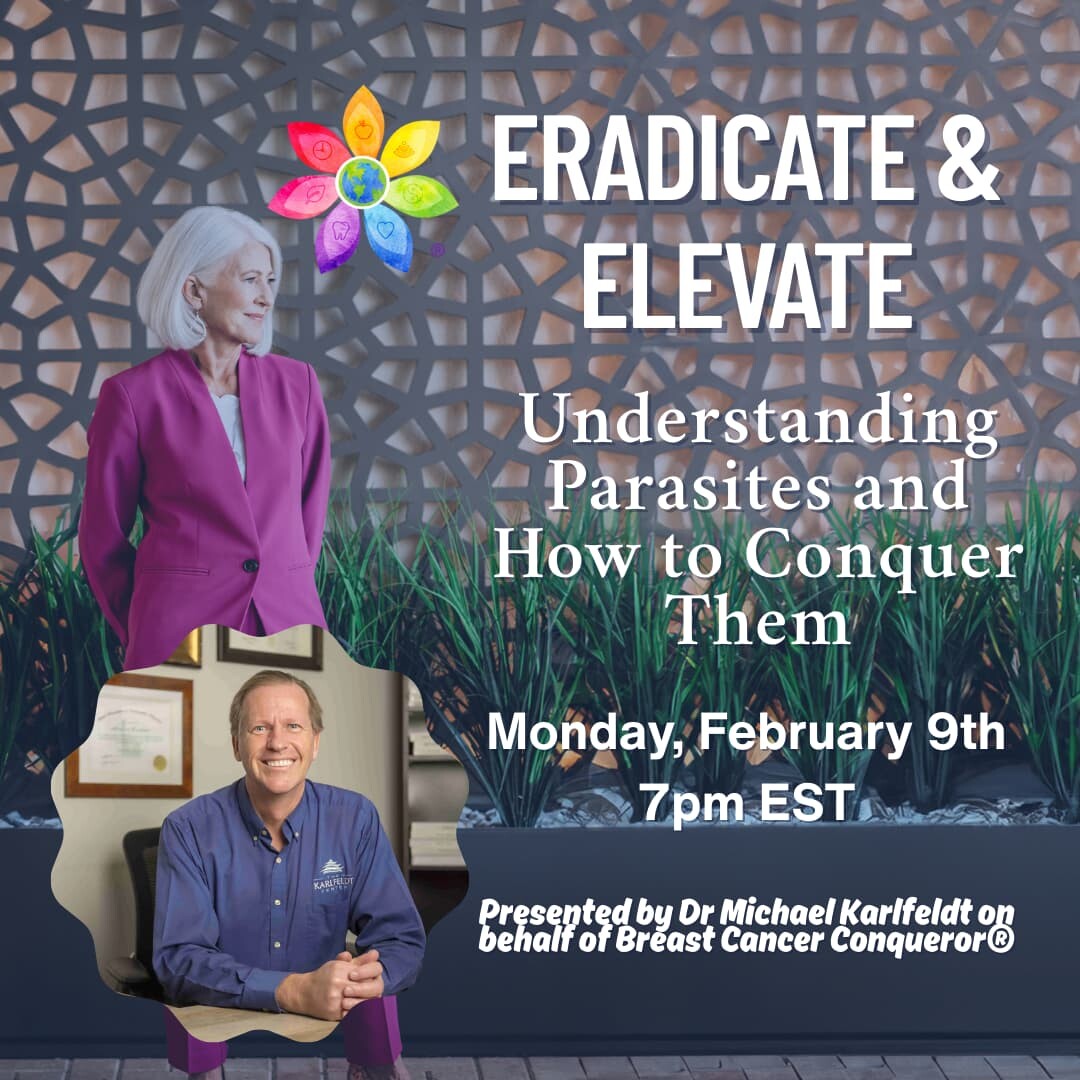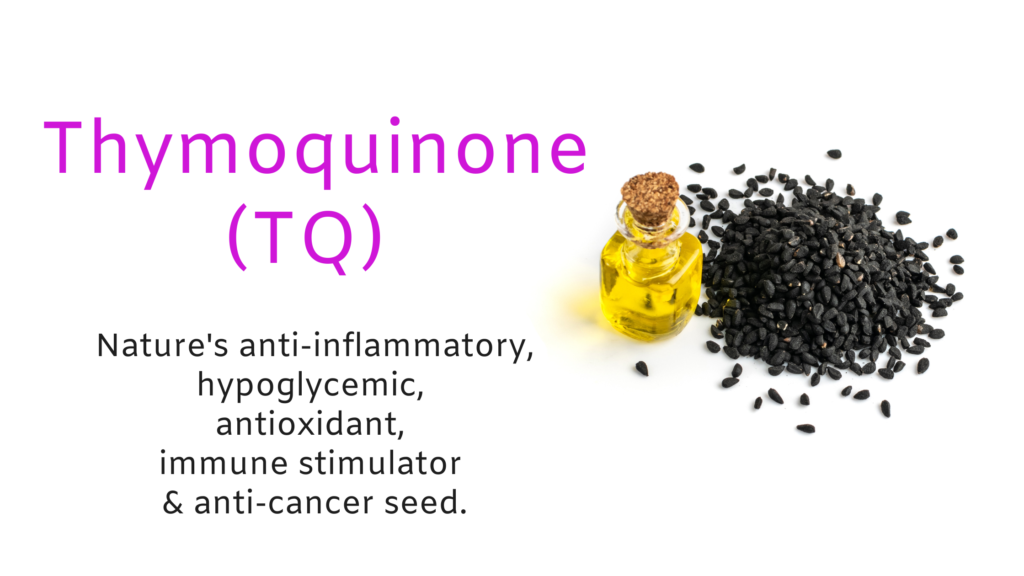
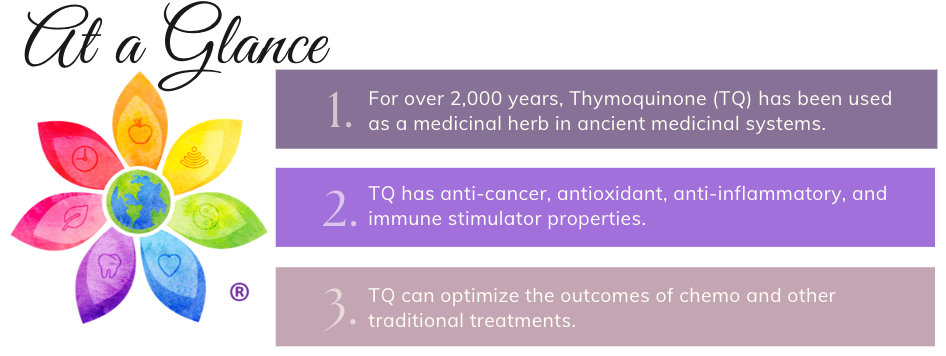
“It is concluded that thymoquinone has evidently proved its activity as a hepatoprotective, anti-inflammatory, antioxidant, cytotoxic, and anti-cancer chemical, with specific mechanisms of action, which provide support to consider this compound as an emerging drug.” – 2014 study.
“Many pharmacological effects of TQ (thymoquinone), such as anti-inflammatory, hypoglycemic, antioxidant, immune stimulator, and anticancer, have been reported.” – 2020 study.
“The study demonstrates the synergy between the standardized black seed oil ThymoQuin and vitamin D3. When combined with vitamin D3, ThymoQuin reduced inflammatory biomarkers and upregulated the immune response.” – 2022 study.
“TQ effectively transforms cancer progression signaling pathways. It not only improves anti-cancer activity of chemotherapeutic drugs but also attenuates their side effects.” – 2016 study.
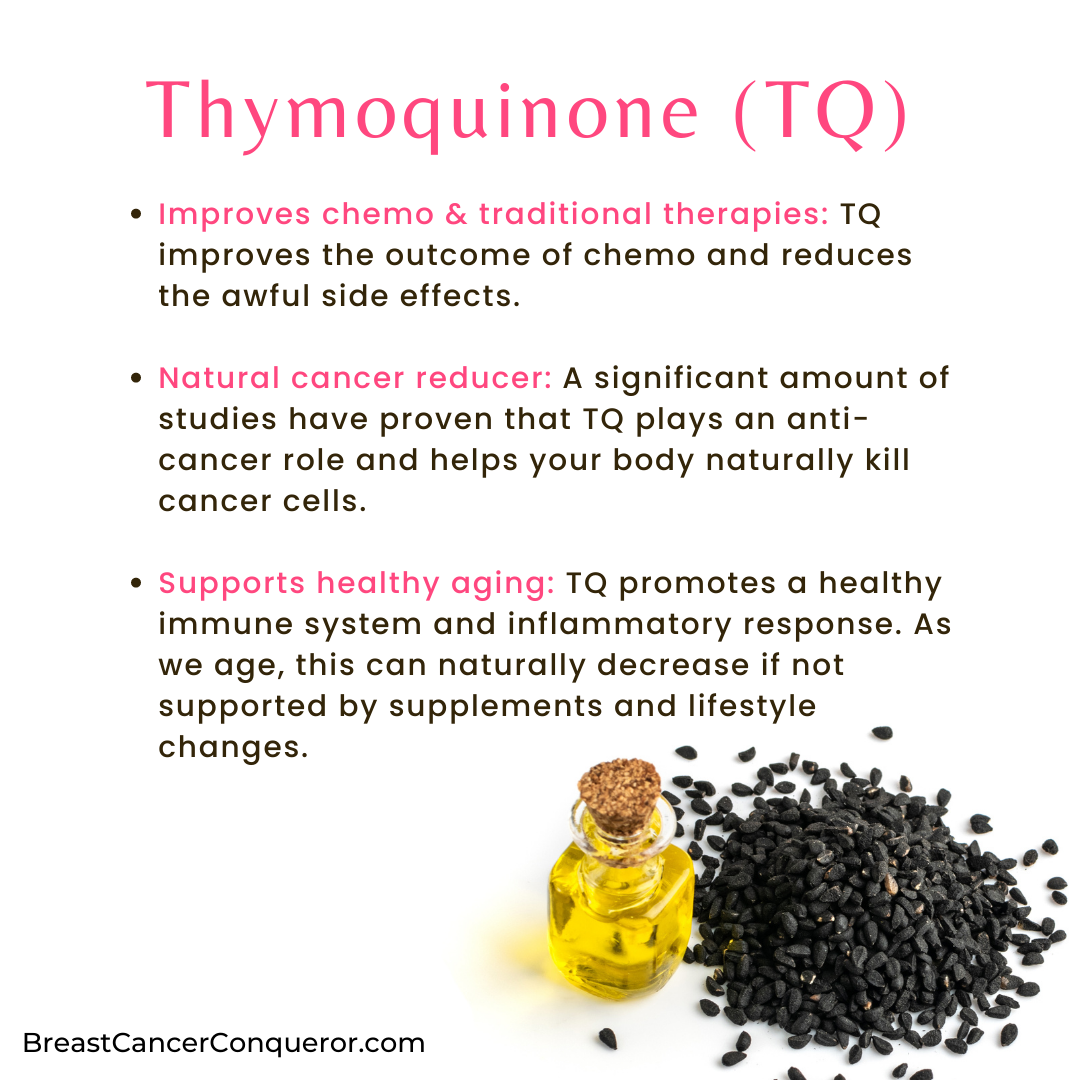
What is Thymoquinone (TQ)?
For over 2,000 years, Thymoquinone (TQ) has been used as a medicinal herb in Ayurveda, Unani, Siddha, and Tibb medicinal systems. Herbalists have referred to it as “the herb from heaven.” It is also a common herb in traditional dishes across Eastern and Asian cultures.
Thymoquinone (TQ) is a phytochemical derived from the seeds of a plant called Nigella Sativa, and it grows in southern Europe, the Middle East, and southwest Asia. It’s also known as nigella, black caraway, fennel flower, black cumin, and Roman coriander. The common supplement, Black Seed Oil, is extracted from these seeds. While it has successfully been used for thousands of years, western medical research has a lot of catching up to do.
How to take Thymoquinone (TQ)
Topical: Oils and pastes can be applied topically to treat skin conditions or provide relief from inflammation and pain.
Internal: Powders, pills, and extracts are used to help prevent or treat internal inflammation, cancer, or chronic disease.
Thymoquinone (TQ) + Breast Cancer
At the beginning of this article, I shared several promising studies that all concluded with TQ exhibits outstanding antioxidant, anti-inflammatory, anti-cancer, and other important biological activities. For example: “Many pharmacological effects of TQ (thymoquinone), such as anti-inflammatory, hypoglycemic, antioxidant, immune stimulator, and anticancer, have been reported.” – 2020 study.
However, the research is still unclear as to how this herb works—the molecular mechanisms behind its anticancer role are still not clearly defined. Some studies conclude that TQ effectively transforms cancer progression signaling pathways. Others suggest that TQ has antioxidant roles and improves the body’s defense system, induces apoptosis, and controls the Akt pathway. The Akt pathway intercedes cell growth and survival by influencing the tuberous sclerosis complex by inhibiting pro-apoptotic proteins or signals.
Here’s another study that shows cellular responses with TQ treatment in human breast cancer cells:
“In general, thymoquinone showed sustained inhibition of breast cancer cell proliferation with long-term treatment. The specificity of phase arrest was determined by thymoquinone dose. The 50% inhibitory concentration (IC50) value determined using the proliferation assay was 25 μM thymoquinone. Late apoptotic cell percentage increased rapidly when treatment duration was increased to 24 h with 25 and 100 μM thymoquinone. Further analysis using cell cycle assay showed thymoquinone inhibition of breast cancer cell proliferation at a minimal dose of 25 μM and led to S phase arrest significantly at 72 h treatment (P = 0.009). It was also noted elevation sub-G1 peak following treatment with 25 μM thymoquinone for 12 h. Increase in thymoquinone to 50 μM caused G2 phase arrest at each time-point studied.”
TQ Can Optimize the Outcomes of Chemo and Traditional Treatments
“TQ effectively transforms cancer progression signaling pathways. It not only improves the anti-cancer activity of chemotherapeutic drugs but also attenuates their side effects.” – 2016 study.
Another interesting benefit is how it improves the anticancer activity of chemotherapeutic drugs—and attenuates their side effects. Here’s a good study to review if you are interested. This is a perfect example of using an integrative approach to healing—using natural medicine to improve the effectiveness (and reduce nasty side effects!) of a traditional therapy such as chemo. Specifically, this study showed that TQ improves the outcomes of Adriamycin, Taxol, Taxotere, cyclophosphamide, and cisplatin in hormone receptor-positive and triple-negative breast cancer models. The study also found that TQ radiosensitizes ER+/PR+ breast cancer cells, thus increasing the treatment effects of radiotherapy.
Thymoquinone (TQ) + General Health 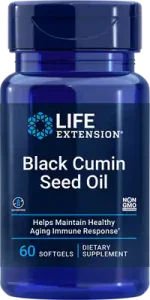
Adding TQ to your supplement routine can help with:
- Reducing inflammation throughout your body
- Supercharging your immune system
- Healthy aging
- Balancing both inflammatory and immune responses
Where to buy Thymoquinone (TQ)?
Life Extension is a trusted brand for testing, supplements, functional foods, and so much more! They currently sell Black Cumin Seed Oil (which is another word for thymoquinone) for only $12 for 60 soft gel capsules.
We are here to help!
You are never alone. Being overwhelmed and confused about what to do, or not do, doesn’t have to be a problem anymore. Working with a Breast Cancer Conqueror Coach is like having your own personal expert to guide you through whatever you may be facing. Trade in fear and confusion for a roadmap and a person to reach out to whenever you need her.
